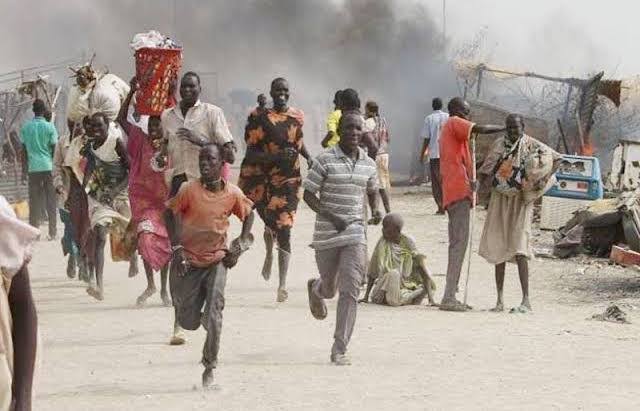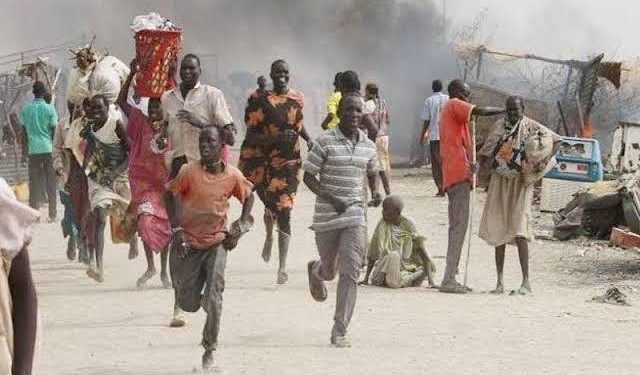In an increasingly volatile world, the twin scourges of insecurity and corruption continue to plague nations, undermining development, eroding public trust, and devastating lives. But beneath the headlines and official statements, a deeper, often concealed, narrative exists – one that investigative journalism is uniquely positioned to uncover.
This vital branch of reporting acts as society’s watchdog, delving into the murky depths of these complex issues to expose their causes, identify those responsible, and highlight potential solutions.The Intertwined Nature of Insecurity and Corruption. It’s a stark reality that insecurity and corruption are not isolated problems; they are deeply interconnected, forming a vicious cycle that cripples progress. Corruption, in its myriad forms, weakens the very institutions designed to protect citizens. Funds meant for security agencies are embezzled, leading to under-equipped and poorly motivated forces. Bribes facilitate the flow of illegal arms, empowering criminal gangs and extremist groups.
ALSO READ: https://nationscuriosity.com/global-crossroads-a-snapshot-of-todays-geopolitical-landscape/
The lack of accountability in the justice system allows perpetrators to escape justice, further emboldening illicit activities.Conversely, insecurity creates an environment ripe for corruption. In desperate times, individuals may resort to corrupt practices for survival or protection. Warlords and criminal networks thrive on instability, using it as a cover for illicit trade, extortion, and human trafficking, often with the complicity of corrupt officials.Investigative Journalism: Shedding Light on the Shadows.

This is where investigative journalism becomes indispensable. Unlike regular news reporting, which often focuses on events as they unfold, investigative journalism takes a deep dive, painstakingly gathering evidence, analyzing data, and connecting dots that powerful forces would prefer to keep hidden.
Causes Uncovered by Investigative Reporting: Financial Malfeasance in Security Sector: Journalists have exposed how billions of naira allocated for defense and security purposes have been siphoned off, leaving security personnel ill-equipped to combat threats. This includes revelations about phantom contracts, inflated procurement costs, and outright theft of public funds.
Weak Governance and Impunity: Investigations frequently highlight the systemic weaknesses in governance that allow corruption to flourish. This includes a lack of transparency, weak oversight mechanisms, and a culture of impunity where powerful individuals are rarely held accountable for their actions.
Complicity of Public Officials: Through meticulous research, journalists have unveiled instances where public officials, from local government to high-ranking federal positions, are directly or indirectly involved in corrupt practices that fuel insecurity, such as aiding and abetting criminal gangs or profiting from illegal resource extraction.
Socio-Economic Disparities: Investigative pieces often link insecurity to underlying socio-economic issues exacerbated by corruption. The diversion of public funds from education, healthcare, and job creation leaves a large segment of the population vulnerable to recruitment by criminal and extremist groups.
Porous Borders and Arms Proliferation: Journalists have consistently reported on how corrupt border officials facilitate the entry of illegal arms and ammunition, directly contributing to the escalation of violence.Solutions Advocated Through
Investigative Journalism:Beyond exposing the problems, investigative journalism also plays a crucial role in highlighting potential solutions and advocating for change:
Promoting Transparency and Accountability: By revealing hidden financial dealings and power abuses, investigative reports push for greater transparency in government spending and operations, demanding accountability from those in authority.
Strengthening Institutions: The exposure of institutional weaknesses often leads to public pressure for reforms within security agencies, the judiciary, and anti-corruption bodies, urging for improved training, better oversight, and stricter enforcement of laws.
Protecting Whistleblowers: Investigative journalists often rely on whistleblowers for crucial information. Their work highlights the need for robust whistleblower protection laws to encourage more individuals to come forward without fear of retaliation.
Empowering Citizens: By providing concrete facts and evidence, investigative journalism empowers citizens with the knowledge they need to demand better governance, participate in advocacy, and hold their leaders accountable.
Fostering International Cooperation: Corruption and insecurity often have transnational dimensions. Investigative reports can expose these links, prompting international cooperation in tackling illicit financial flows, arms trafficking, and organized crime.
The Path Forward: Sustaining the Watchdog Role the fight against insecurity and corruption is a long and arduous one, but investigative journalism remains a powerful weapon in this battle. However, this critical work often comes with significant risks for journalists, including threats, harassment, and legal battles.To sustain this vital watchdog role, there is a pressing need for:
Protection for Journalists: Ensuring the safety and security of investigative journalists is paramount, enabling them to pursue truth without fear.
Funding and Resources: Investigative reporting is resource-intensive. Support for independent media organizations and individual journalists is crucial.
Public Support and Engagement: An informed and engaged public is the ultimate catalyst for change. Citizens must actively consume, share, and act upon the revelations brought forth by investigative journalism.By continually shining a light into the darkest corners of society, investigative journalism not only uncovers the causes of insecurity and corruption but also illuminates the path toward a more secure, just, and prosperous future for all.


